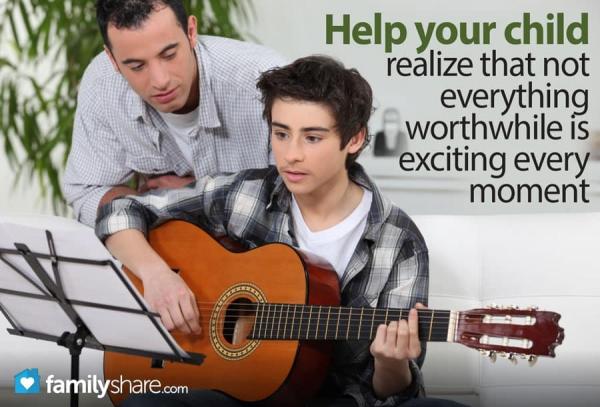
Many kids take music lessons these days, and it's no wonder. Music lessons provide dozens of proven benefits. A 10 year study at UCLA indicates that students who study music achieve higher test scores, despite differences in their economic background. Secondary students who participated in band or orchestra reported the lowest rates of substance abuse. Additionally, here's good news for the college-bound: Admissions departments see participation in music as an important factor in making admissions decisions.
That's just the beginning. Taking music lessons teaches that hard work brings rewards. Learning to do something well is key for a healthy self-esteem. The ability to strive for excellence in a skill, rather than settling for bare minimum, will benefit a person in so many ways. Developing a love of music lends refinement to life and will improve and deepen life's experience for a person's entire existence.
Research shows that kids who study music do better in math. While the two topics may seem vastly different, studying music appears to order the mind, helps with concentration and grasping complex concepts. Merely listening to classical music provides some of these benefits.
In order to provide this, parents are signing kids up for music lessons in droves. Other than forking over the tuition, what else can parents do to get the most from music lessons? Here are some things every parent should know:
Know when to start
While kids can begin taking music lessons at a remarkably young age, each child's attention span is different. Wait to begin lessons when the child can focus on a single task for at least fifteen minutes. Keep in mind kids can easily accomplish practicing goals when broken up into segments, starting with 15 minutes and gradually increasing.
Be encouraging
Help your child understand that while they're usually excited to begin, soon the newness will wear off and it will become work. That's not a bad thing! Help them realize that any significant skill requires dedication and effort, whether it's basketball, ballet, or piano.
Make expectations clear
Kids should know that signing up for music lessons requires a commitment to practice. You commit to pay their tuition, and in return, they commit to practice. Even short sessions are effective, if consistent. Short practice sessions are best for young children.
Help your child realize that not everything worthwhile is exciting every moment. For all things that require effort, there will be times when it seems hard, boring, or not as fun as hanging out with friends. If they persevere, their proficiency on the instrument will increase to the point where creating music becomes a joy in their life.
Ask any music teacher and they will tell you that countless numbers of people abandon lessons at that hard point, before they'd cross over to where playing would become more enjoyable. They often regret it. Knowing that hard bump will probably come, you can better prepare for it. Here are a few ideas:
-
Have "fun" music available for kids to play when regular practicing is done.
-
Let kids keep track of their own practicing time with a timer and calendar near the practicing area. Less nagging=happier parents and happier kids.
-
Provide lots of encouragement and praise. Perhaps there could be a special treat when a practicing calendar is complete, or a certain level is achieved. Point out how well they play compared to when they first began. Seeing progress always helps motivation.
-
Be their biggest fan when they perform and support recitals and concerts whenever possible.
All of this hard work, on both the parent's and the child's part, can result in a lifetime of enjoyment.

